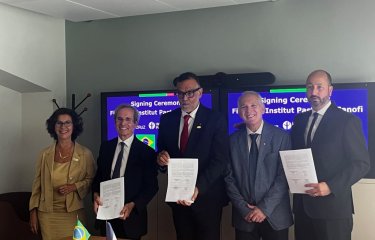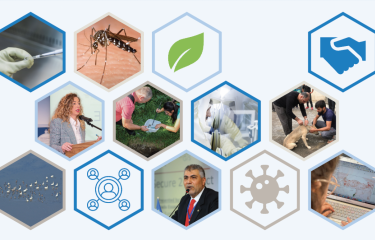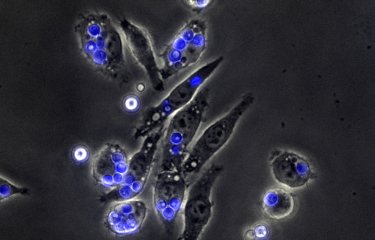Yangon, 27 September 2019
French Development Agency (AFD), European Union (EU) and Ministry of Health and Sports (MoHS) to collaborate on improving Myanmar’s ability to diagnose and manage infectious diseases
In the presence of the French Ambassador Christian Lechervy, EU Ambassador Kristian Schmidt, and the Permanent Secretary of the Ministry of Health and Sports, Prof. Dr. Thet Khine Win, the National Health Laboratory Project was launched in Yangon. The project will strengthen the country’s capacity to investigate any kind of disease and control emerging threats to the public health.
A significant number of diseases threaten public health in Myanmar: some of which are crossing borders from neighboring countries, while others are endemic. Until recently, the ability to diagnose and monitor these infectious diseases and epidemics was limited. Myanmar needed to rely on support from laboratories abroad.
“The National Health Laboratory Project will change that,” said Prof. Dr. Htay Htay Tin, Deputy Director General of the National Health Laboratory (NHL). “The project will provide Myanmar with a Biosafety Level 3 (BSL3) national reference laboratory in Yangon. It will also improve laboratory conditions in Mandalay, and will strengthen our national capacities in diagnostics, surveillance, preparedness, and response. This will have a very positive impact on public health in Myanmar.”
The ambitious project will be implemented over a four-year period, starting in 2019, and is funded through a EUR 22 million soft loan from AFD, in charge of implementing bilateral aid from the French Government, and a EUR 5 million grant from the European Union (EU).
The concessional loan granted by AFD to the Myanmar Ministry of Health and Sports (MoHS) will be used to construct and rehabilitate the buildings of the NHL in Yangon and Mandalay. This includes a brand new 3,000 square meter building that will house a BSL3 high security laboratory. The first of its kind in Myanmar.
The project is the result of more than 6 years of fruitful collaboration between the Institut Pasteur, the Mérieux Foundation, the NHL, and the Ministry of Health and Sports. The Mérieux Foundation has also been working with the MoHS, renovating and equipping three laboratories in Mandalay, Dawei, and Yangon, together with training and transferring technology to their staff. In the National Health Laboratory Project, the Mérieux Foundation’s local teams, in Yangon and Mandalay, will provide expertise in helping health authorities build laboratory systems and networks that provide quality diagnostic services and disease surveillance.
Institut Pasteur, which has been supporting NHL on the detection, diagnostics, and care of diseases such as leptospirosis, will lead the training component of the project. It will rely on the regional presence of the Institut Pasteur International Network and its expertise in developing countries to support the implementation of the NHL Project.
"The European Union has full confidence in the ability and potential of the people of Myanmar, including in managing its own health services. This is why we are providing a € 5 Million grant to train Myanmar staff to efficiently and independently operate this future state-of-the-art laboratory" said Kristian Schmidt, the EU Ambassador to Myanmar.
The Ambassador of the French Republic, Christian Lechervy, added. “With reinforced capacities and new high-quality equipment, the NHL will strengthen its position as the national reference laboratory for Myanmar and become a key player in public health, both at the national and the regional level. This will have a substantial impact on Myanmar’s ability to monitor and manage epidemics.”
The new laboratories in Yangon, as well as the rehabilitated ones in Yangon and Mandalay, are expected to be fully operational in 2024.





